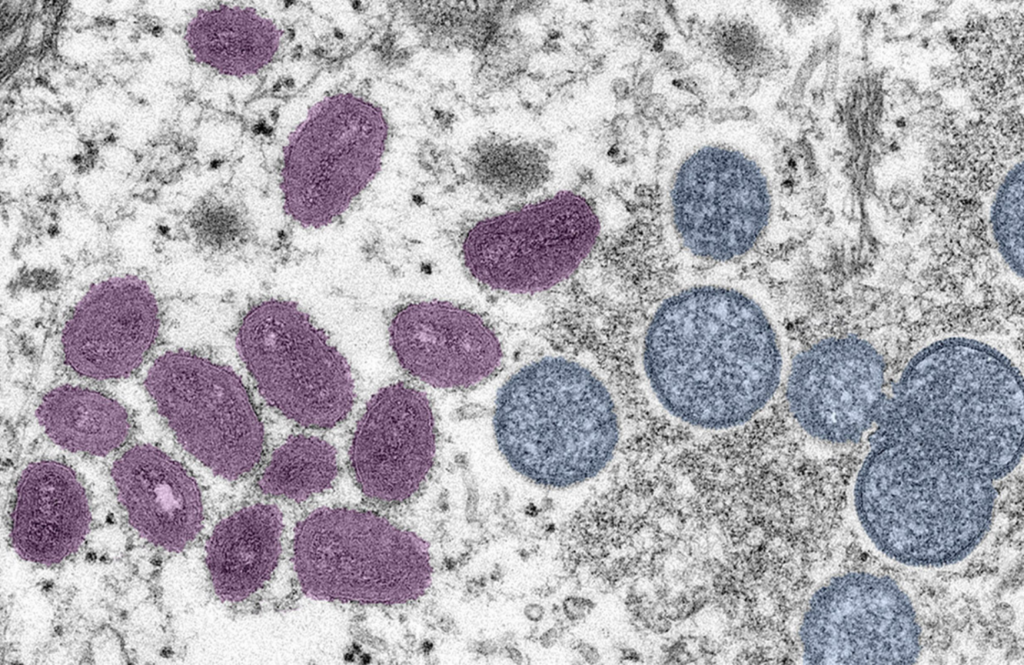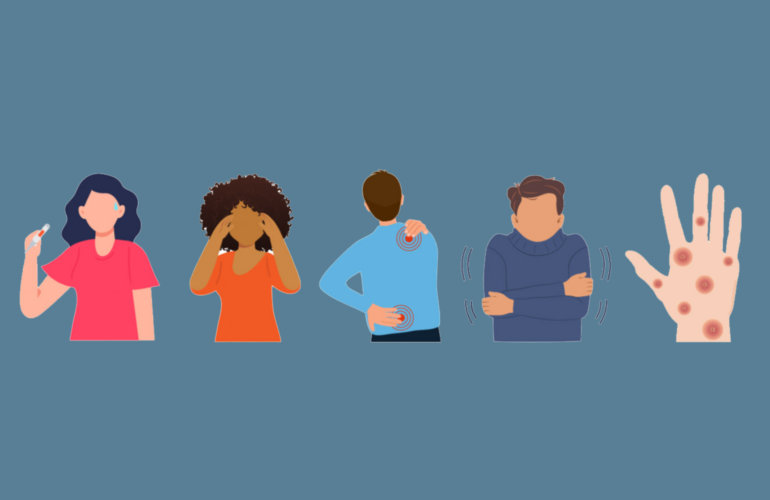A recent monkeypox outbreak caused the World Health Organization to declare a public health emergency on Saturday, July 23, 2022. The current outbreak is not the first in the United States, yet monkeypox is an unfamiliar virus to most of the public. Navigating a health crisis is tricky, but understanding what monkeypox is and how it spreads is essential in keeping everyone healthy.
🚨 BREAKING:
“For all of these reasons, I have decided that the global #monkeypox outbreak represents a public health emergency of international concern.”-@DrTedros pic.twitter.com/qvmYX1ZBAL— World Health Organization (WHO) (@WHO) July 23, 2022
What is Monkeypox
Monkeypox is a rare virus similar to smallpox but with milder symptoms, including fever, muscle aches, headaches, chills, and exhaustion. A few days after the start of a fever, individuals with monkeypox develop a rash. The rash usually starts on the face before spreading to other body parts. An additional sign of monkeypox not found in smallpox includes swollen lymph nodes.
According to the Centers for Disease Control and Prevention (CDC), the current strain of monkeypox is rarely fatal. More than 99 percent of those infected with monkeypox survive. Those with a weakened immune system, history of eczema, people who are pregnant or breastfeeding, and young children under the age of eight are at a higher risk of severe illness.

Monkeypox transmits by respiratory droplets or physical contact with infected skin. It can also spread through contaminated materials or animals. According to the Illinois Department of Health, there are 385 confirmed monkeypox cases in Illinois as of July 28, 2022.
Tips for Preventing Monkeypox
There are various precautions to take to reduce the chances of monkeypox infection.
- Practice proper hygiene. Wash your hands with soap and water regularly, especially after being in a crowded space where you may brush up against people or shake a lot of hands.
- Avoid skin-to-skin contact with anyone who has monkeypox. Contact includes hugging, kissing, holding hands, or having sex.
- Do not handle objects, such as bedding or towels, used by someone with monkeypox.
- If you’re traveling to Central or West Africa, avoid contact with animals known for spreading monkeypox, primarily rodents.
I wish for it to be known that I’m recovering from monkeypox, having tested positive for it 2 weeks ago. The irony that I am the 1st reporter in Chicago who reported on it 2 months ago and then contracted it is not lost on me. It’s serious, and it’s a dreadful disease. Avoid it.
— Aaron Gettinger (@aarondgettinger) July 22, 2022
Monkeypox vaccine
The US Food and Drug Administration (FDA) licensed two vaccines to prevent monkeypox infection. The two vaccines are JYNNEOS and AXAM200. There is a limited supply of JYNNEOS, although the public can expect more in the coming weeks or months. There is enough ACAM2000; however, the FDA does not recommend it for those with a weakened immune system, pregnant, or with skin conditions like eczema.
The monkeypox vaccines can help prevent the virus before and after exposure. The CDC recommends getting a vaccine within four days of exposure for the best chance of preventing the disease. The CDC considers individuals fully vaccinated 2 weeks after their second shot of JYNNEOS and 4 weeks after receiving ACAM2000.
Currently, the CDC is not recommending widespread vaccination against the virus.
Vaccines are prioritized for those who have had close contact with someone with monkeypox. If you believe you’ve been exposed, contact your primary healthcare professional for more information on receiving a vaccine.
If you’re in Chicago and in need of the MonkeyPox vaccine here is a list of places where you can get it. Please feel free to share! #monkeypoxvaccine #Chicago #community pic.twitter.com/tKKv4likxW
— José Che-Che (@jrt_cheche) July 20, 2022
Debunking Monkeypox Myths
As with any new outbreak, there are myths about what monkeypox is and how it spreads. Here, we set the record straight.
Monkeypox is not a sexually transmitted infection (STI)
While it is possible to contract monkeypox if you have sex with an infected person, the virus is not an STI. Monkeypox spreads through intimate physical contact, which includes sex, but also includes hugging, kissing, and massaging. It can also spread by touching fabrics or objects, such as bedding, used by someone with monkeypox.
Monkeypox does not only affect gay men
A person’s sexual orientation does not put them at higher risk for the virus. Any person can contract monkeypox, regardless of sex, age, or sexual preference.
Monkeypox is not a new virus
The first case of monkeypox dates back to 1958 in monkeys. The first human case was in 1970 in Africa. The United States saw its first major outbreak in 2003 after an infected rodent came into contact with prairie dogs at an Illinois animal vendor. The prairie dogs infected a few people, including 10 Illinois residents.
How to Help:
Howard Brown Health provides comprehensive health and wellness programs to the LGBTQ+ community, their families, and allies. Howard Brown Health is offering MPV screenings and rolling out vaccines in Chicago. Donate to support their efforts.
More from Better:
- 4 Summer Superfood Recipes Packed With Ingredients that Promote Healthy Aging
- 10 Groundbreaking Medical Innovations That Are Dramatically Changing Healthcare Outcomes
- Better Family Dinners: Bacon-Wrapped Dates and Patatas Bravas Recipes from Cafe Ba-Ba-Reeba! Chef Eric Jorgensen

Jessica Braun Gervais is a Chicago-based freelance writer specializing in health, wellness, and fitness. She earned a B.A. in Journalism from Columbia College and has written content for various health and wellness institutions. Jessica Braun’s passion for wellness comes from her life as an elite athlete competing in Muay Thai kickboxing competitions across the country. In addition to sharing her expertise through writing, Jessica Braun also works as a group fitness instructor and personal trainer. When she’s not writing or training, Jessica Braun enjoys reading historical fiction novels, discovering new coffee shops, and cuddling with her cattle dog, Brady.

